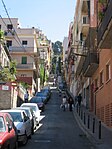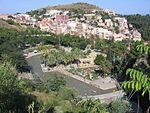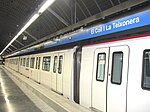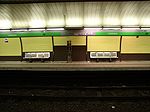Parc de Cervantes
Buildings and structures completed in 1965Parks in BarcelonaSpain stubsTourist attractions in Barcelona
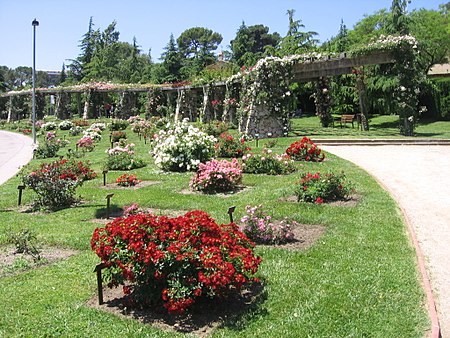
The Parc de Cervantes (in Spanish: Parque de Cervantes) is located in the Pedralbes neighborhood, belonging to the Les Corts district, in Barcelona, Catalonia, Spain. It is located between Avinguda Diagonal and Avinguda de Esplugues (in a section that corresponds to Ronda de Dalt), right on the border with the municipality of Esplugas de Llobregat. Opened in 1965, it specializes in rosebushes. It has an area of 87,665 m2.
Excerpt from the Wikipedia article Parc de Cervantes (License: CC BY-SA 3.0, Authors, Images).Parc de Cervantes
Baixada de Solanell, Barcelona Gràcia
Geographical coordinates (GPS) Address Website Nearby Places Show on map
Geographical coordinates (GPS)
| Latitude | Longitude |
|---|---|
| N 41.413611111111 ° | E 2.1527777777778 ° |
Address
Parc Güell
Baixada de Solanell
08001 Barcelona, Gràcia
Catalonia, Spain
Open on Google Maps


